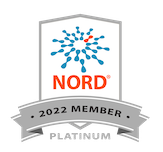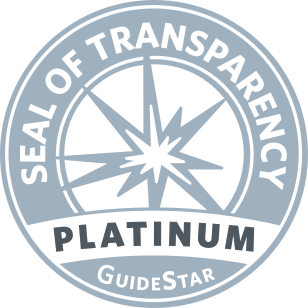Embracing and Adapting to AMD
Beacon Stories
In honor of Age-Related Macular Degeneration (AMD) and Low Vision Awareness Month, we’re highlighting Toni’s story. In her almost eighth decade of life, Toni Mehler has learned to adapt to the unknown, and she draws from those experiences to embrace her diagnosis of AMD.
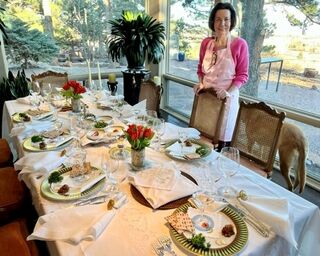
Toni standing in front of a large family table setting.
Toni Mehler has learned to be fearless when it comes to facing adversity. In her almost eighth decade of life, she’s learned to adapt to the unknown, and she draws from those experiences to embrace her diagnosis of age-related macular degeneration (AMD).
Toni holds a doctorate in Human Development, and she and her husband, a psychiatrist, had a clinical practice in Maryland for 30 years. While working with a patient one spring morning in 2001, Toni felt something like water rising in her eyes. It proved to be a vitreous detachment, but the eye doctor also found evidence of dry AMD during the examination.
Toni was crushed and terrified by this diagnosis. Her mother had already lost her vision because of the disease.
“When I was first diagnosed, I thought there was nothing I could do, that my life as I knew it was done,” Toni recalls. “But with time, I was able to calm down, at least long enough to focus on how to adjust to what the disease would most likely mean and, in time, as the condition progressed, on how to maximize my vision. It also became clear that I already knew how to cope with my distress because I did it for a living: focus on helping others work through what they perceived as too great to overcome. I concentrated my practice on patients suffering from chronic diseases, and most of what I know about dealing with my own disease, I learned from their patience and courage and persistence.”
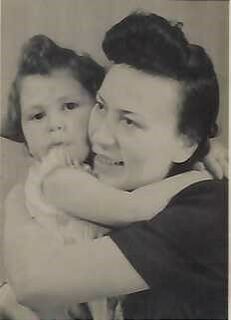
A black and white photograph of Toni as a child and her mother.
Toni persevered with her life, doing what she could to keep herself healthy. She took AREDS vitamins, ate leafy greens every day, exercised, and each day that brought no significant vision loss gave her hope. In 2008, she and her husband sold their practice and followed her son, daughter-in-law, and two grandchildren to Boulder, Colorado, where they live now.
By 2013, Toni had developed the wet form of AMD in both eyes. About 10-15 percent of people with dry AMD will develop the wet form in one or both eyes. And later that year, she was diagnosed with geographic atrophy (GA), an advanced form of dry AMD, in both eyes as well. In 2015, she lost much of the vision in her left eye.
Throughout Toni’s vision loss progression over the years, she’s remained resilient, which she credits to learning from her mother. Toni’s mother was imprisoned in a concentration camp for five years during World War II and lost her parents and brothers to the Holocaust. Toni’s mother eventually went completely blind from her AMD, but she still kept on painting, cooking, and trying to be useful to herself and others until she passed.
But regardless of how her mother managed her AMD, Toni is determined to make the most of the vision she has remaining.
“No matter how hard I fall, I’m always going to get back up, either through my own strength or with somebody else’s help, usually both,” says Toni. “Falling doesn’t mean you can’t get up again, it just means you have to learn how to get up again.”
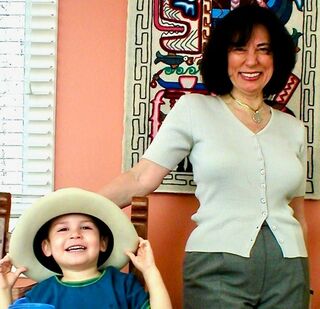
Toni and her oldest grandson smiling.
To continue thriving independently, Toni uses assistive technology on her phone and laptop and has learned a lot about low vision resources from the Ensight Skills Center in Fort Collins, Colorado. They sent a low vision specialist to Toni’s house to assess how she lives her daily life to provide her with the tools she needs to live independently.
“Not enough people with AMD seek out assistive resources like this,” says Toni. “So I want to help others with AMD work with the vision they have and learn about the available tools that help maximize it.”
All the ups and downs of living with AMD have taught Toni humility. AMD has also taught her not to take what she has for granted. She credits her positive attitude on life to learning to breathe.
“Once you’re calm, you can think, and once you can think, the world opens in a way that it doesn’t if you’re operating emotionally, and AMD makes you react emotionally, and almost always negatively,” says Toni. “Breathing helps you calm down, control the emotional reaction, and often replace it with a response that will open the world once more.”
This Beacon Story is brought to you in partnership with Astellas Pharma.
